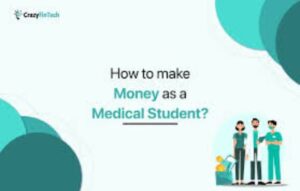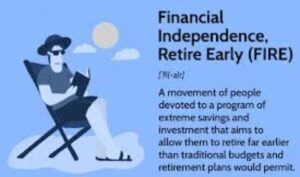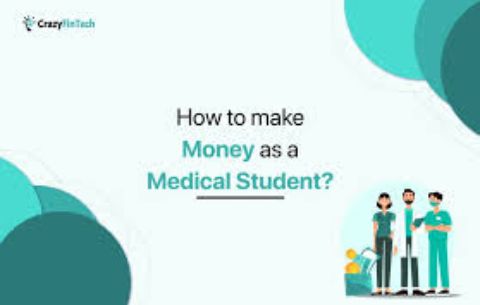Attending medical school is undeniably a rigorous and demanding endeavor that necessitates a significant investment of time, effort, and financial resources. Balancing the rigorous academic curriculum, clinical rotations, and other responsibilities can be a daunting task for medical students, Entrepreneurng.com

However, despite these challenges, there are various avenues through which medical students can augment their income while pursuing their education. By exploring these five practical strategies, medical students can potentially alleviate financial burdens and gain valuable experience along the way.
1. Tutoring: One lucrative option available to medical students is offering tutoring services to their peers or undergraduate students studying pre-med. With their comprehensive knowledge and understanding of the subject matter, medical students can provide valuable guidance and support to those in need.
Tutoring can be conducted on a one-on-one basis or in group settings, allowing students to tailor their schedules according to their academic commitments. Furthermore, advancements in technology have made online tutoring platforms easily accessible, providing the convenience of working from home or any location with an internet connection.
2. Participation in medical research studies: Many medical schools engage in ongoing research studies that require the involvement of participants. These studies often seek individuals from diverse backgrounds, including medical students.
By volunteering as research participants, medical students can not only contribute to scientific advancements but also receive compensation for their time and efforts. In addition to the financial benefit, participation in research studies allows students to gain exposure to cutting-edge research methodologies, expand their scientific knowledge, and potentially foster valuable connections with renowned researchers.
3. Freelance writing: Medical students possess a wealth of knowledge in their field, and this expertise can be effectively utilized through freelance writing. By leveraging their understanding of medical concepts, procedures, and healthcare issues, students can contribute articles and blog posts to medical websites, publications, or even start their own blogs.

Freelance writing offers the flexibility of working during spare time, allowing students to balance their academic commitments. Additionally, it can serve as a steady source of income, particularly when students establish ongoing relationships with publications or secure long-term writing contracts.
4. Medical transcription: With advancements in technology and the increasing need for accurate medical documentation, the demand for medical transcriptionists has grown significantly. Medical students can leverage their familiarity with medical terminology and procedures to work as transcriptionists.
This role involves converting audio recordings of medical reports, dictated by healthcare professionals, into written documents. Medical transcription can be pursued as a part-time or remote job, offering flexibility in terms of working hours and location. Moreover, the experience gained in this role can enhance medical students’ understanding of medical documentation and improve their overall communication skills.
5. Medical scribing: Working as a medical scribe provides medical students with an immersive clinical experience and a steady income. As scribes, students work alongside healthcare professionals, accompanying them during patient visits, documenting medical histories, and assisting in the maintenance of electronic medical records.
This role not only enhances students’ medical knowledge and clinical skills but also offers valuable insights into the daily operations of healthcare settings. Medical scribing opportunities can be found in hospitals, clinics, and specialized medical practices, and they often provide flexible scheduling options to accommodate students’ academic commitments.

Conclusion
While pursuing medical education alongside employment can be demanding, these five income-generating options offer medical students a chance to gain valuable experience, reduce financial burdens, and develop essential skills.
However, it is crucial for students to effectively manage their time and priorities, ensuring that their academic progress remains the primary focus. By striking a balance between their commitments, medical students can navigate the challenges of medical school while laying the foundation for a successful academic and financial future.












